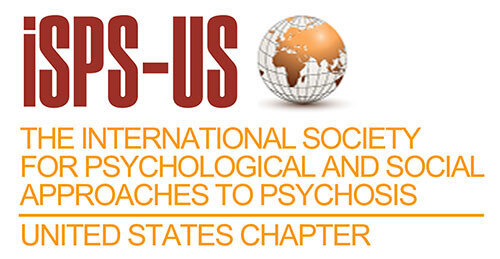Core to ISPS-US's work are the values and principles that guide us. Learn more below.
- Respect for Personal Experience: ISPS-US believes in the right of the person to identify, define, and understand their own experiences. All people are valuable and have a fundamental right to be treated with dignity and respect.
- Pluralism in Understanding: Experiences termed “psychosis” have been and continue to be understood in a wide variety of ways, including as adaptations to trauma, spiritual experiences, sociopolitical events, reflections of social and structural violence, neurodiversity and/or illness. Providers and systems should support pluralism and diverse approaches to meaning-making among those directly impacted by these experiences.
- Rejecting Reductionism: Any form of reductionism or top-down imposition of conceptual frameworks risks overwriting the rich and varied ways in which individuals make sense of their experiences. Any language or terminology that is imposed by individuals or groups in positions of greater social power should be critically engaged with and attention returned to those directly impacted and their preferred language and explanations.
- Diverse Paths to Healing: People define and understand ‘healing’ in diverse ways. Assumptions should never be made about what forms of (or supports for) healing are best, and humility must be embraced with respect to the diversity of understandings and approaches for any given individual. Psychological interventions may be central to healing for some and not others, as is true of any type of intervention or support.
- Medication as Choice, Not Default: ISPS-US recognizes and challenges psychotropic medication as a first-line or only treatment for psychosis. We believe that medication should always be a personal choice. We are NOT an anti-medication or anti-psychiatry organization. However, we do believe in self-determination, flexibility, and critical thinking surrounding psychotropic medications.
- Addressing Social Determinants: Social issues such as unemployment, poverty, housing precarity, and food insecurity, manifest in the lives of individuals labeled with psychosis in a variety of ways. ISPS commits to a critique of the policies and practices that undergird these. Further, ISPS-US promotes competency and interventions designed to build structural and social supports that promote full community participation and flourishing.
- Promoting Comprehensive Support: We support funding for a variety of treatments and interventions, including meaning- and relation-centered therapies, psychosocial interventions, community support, and cultural healing practices.
- Valuing Lived Experience: Peer services should be valued and supported, including financially. People with lived experience should be in leadership roles across the spectrum of peer support, research, policy, and clinical work. We cannot grow without the inclusion of these voices at all levels.

